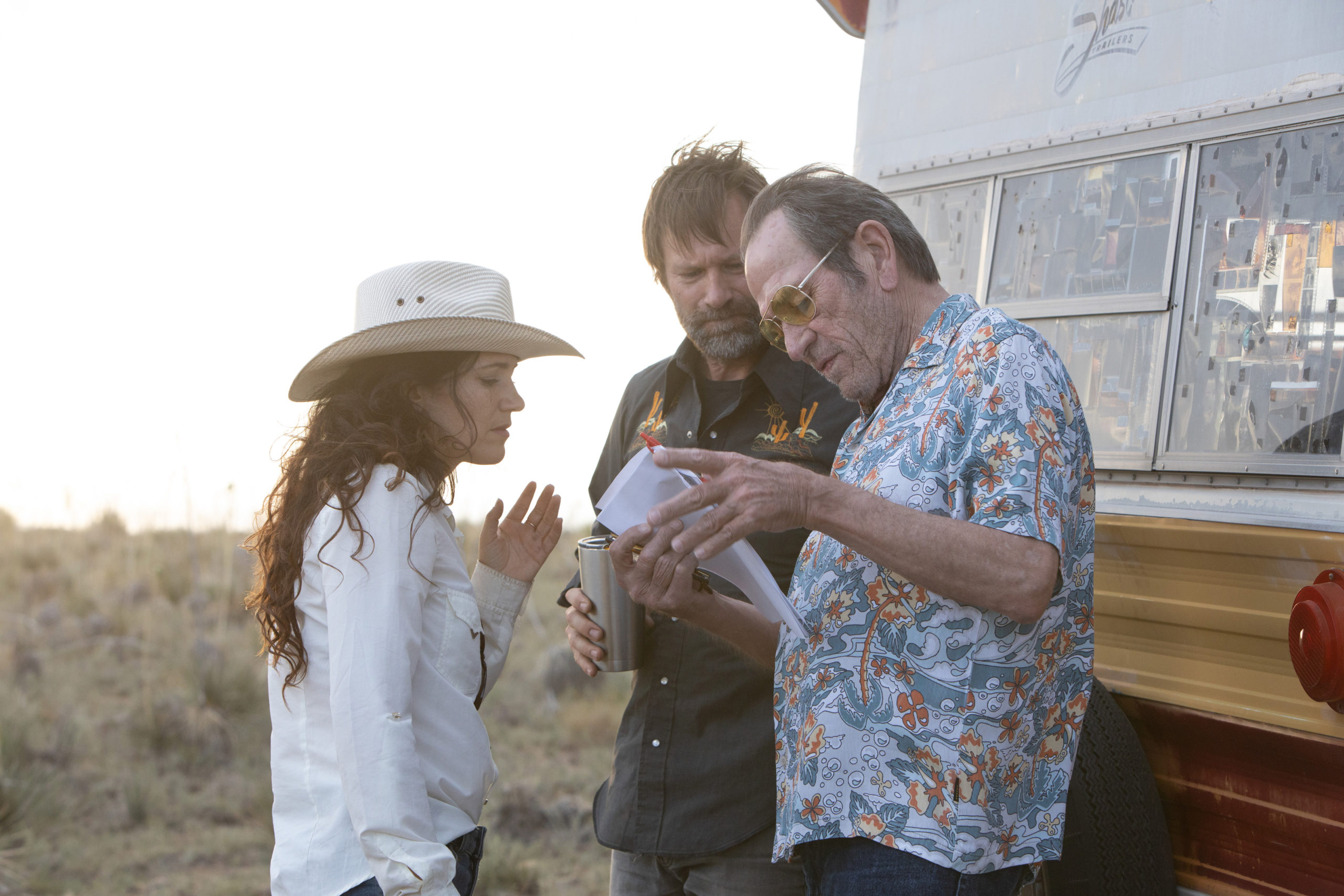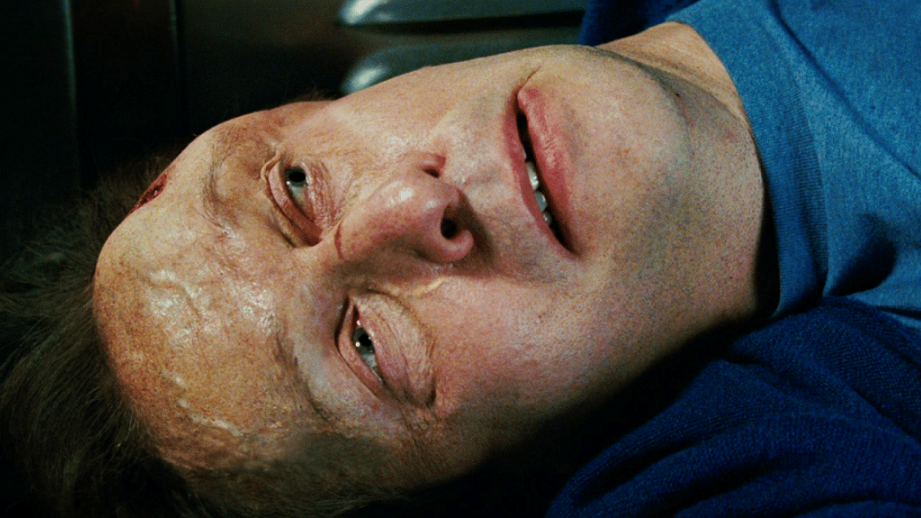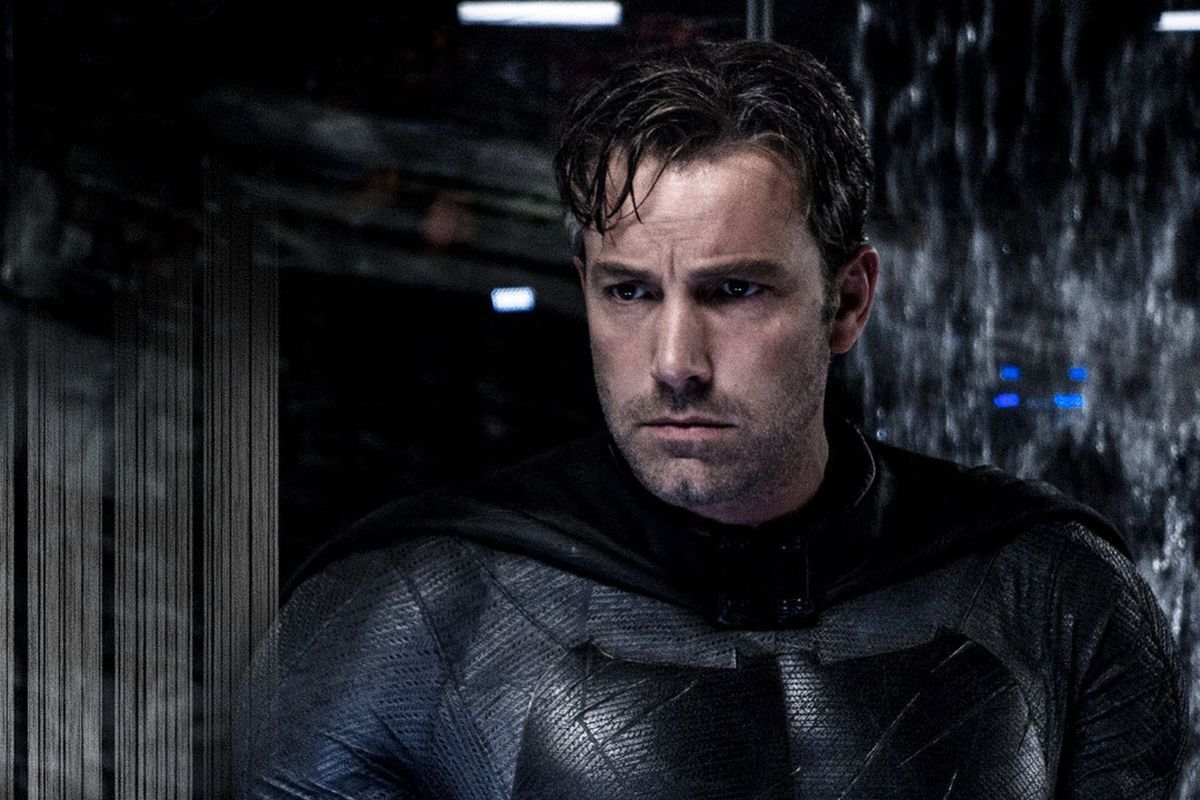One film that may be flying under the radar this holiday season is the thriller, Wander. It’s directed by April Mullen and written by Tim Doiron. It has a stellar line-up of talent including Aaron Eckhart, Katheryn Winnick, Heather Graham, and Tommy Lee Jones.
In Wander, Eckhart plays a mentally unstable private investigator. After getting probed to investigate a death in the small town of Wander, he becomes convinced that this case is linked to the same conspiracy cover-up that led to the death of his daughter.
Wander is a wild psychological thriller that will have you re-assessing who you believe throughout the film. Mullen does a fantastic job of keeping the audience on their toes. The star-studded cast delivers a great performance. Especially Eckhart who we focus on throughout the film.
LRM Online had the opportunity to have a conversation with director April Mullen about Wander. During the conversation, we talk about the process of creating a film with so much mystery. We also focus on Arthur from Eckhart’s performance to the development of the character. Be sure to check it out below!
Also, be sure to watch Wander! It’s currently available in Theaters, On Demand, and Digital.
Emmanuel Gomez: We’re here to talk about the Saban Films Wander, which is on digital and on-demand on December 4th. First of all, congratulations on a great film. And what a cast.
April Mullen: Oh, I know. Brilliant.
Emmanuel Gomez: Aaron Eckhart, Katheryn Winnick, Heather Graham, Tommy Lee Jones. Can you start off by telling me how it is to work with that many stars?
April Mullen: Yes, it was an absolute pleasure. Starting with Aaron Eckhart, our star and our lead, this man brings it all to set and leaves it on the floor. He was Arthur Bretnick. He landed on the floor, dedicated beyond belief, brings every moment to the truth and originality as much as he can. He’s intelligent, hilarious and beyond dedicated. So I loved working with him. We were really intimately connected, and we’re attached at the hip and did not leave one another’s side because even every second in the movie, but also because we really had a great working relationship, and I absolutely adored working with him.
Tommy Lee Jones, the legend that he is, brought with him such charisma and power. When he walked onto set, he just sort of lived in this new character, Jimmy, which was very different, I think, than anything else he’s ever played, which he loved. He found a lot of fun nuances in playing a role like Jimmy, and I thought he really reveled in and enjoyed it. And he’s just so grounded, and his energy opposite Aaron Eckhart was just such a unique kind of magnetic ping-pong dance that I would be watching at the monitors. And they just needed ever so slightly to be guided, but other than that, they were a dynamic duo.
ALSO SEE: JON HAMM & JOHN PATRICK SHANLEY TALK ABOUT WILD MOUNTAIN THYME [EXCLUSIVE INTERVIEW]
And then for Heather, Heather Graham, she as well is such a dedicated actress. She came to set fully prepared, and I loved her in the role of Shelly. I don’t think she gets to play sort of the supporting … She is the grounded one. She’s not a romantic lead. She’s not some cute, sexy kind of love interest. She’s the best friend, and she tethers Arthur to the real world. So she had a really important role, and she’s, again, very intelligent and holds her own in the film. And for Heather Graham to be seen in this new light, I really loved it. And she felt challenged by the material and loved working on an Indie film out in Carrizozo, New Mexico. So that was fantastic.
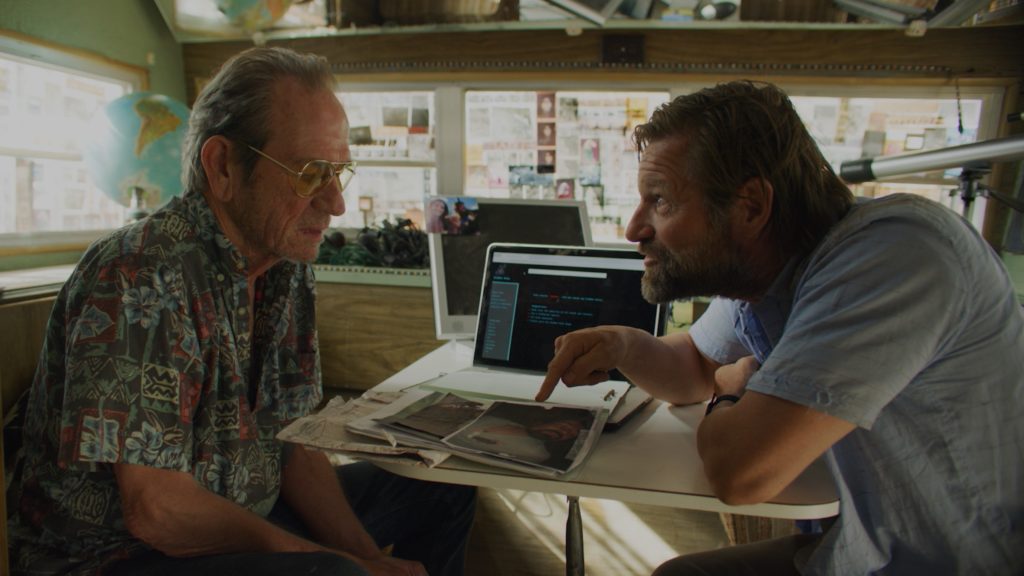
And then Katheryn Winnick came to set. There was a tiny, tiny window of a beautiful sunset, and she had to jump out of a window. And I had her stunt performer ready to go. And she was like, “No, I got this. I got this. Let’s go.” The sun was setting. And I was like, “Are you sure? You’re jumping out of a window. And Aaron Eckhart is going to catch you because he wants to do his own stunts too.” So I’m like, “We haven’t even rehearsed.” But we had 15 minutes, and the sun was setting. And she was like, “I’m game. Let’s go.”
So she put on her black hood, and she did it herself. And it was a one-take wonder. We did it twice, and she just nailed it. And she had a really important role as well because she kind of is the big, bad in a lot of ways. And it was a huge theme at the end of the film that she was very prepared, went through the script so much. We worked hard together, and she is an absolute phenomenal performer.
Emmanuel Gomez: So I assume that, not to say that other types of films are less difficult, but a conspiracy thriller, I love them because they’re the journey. They’re almost like a roller coaster ride of information and attention. As a director, how do you approach a film like that? I mean, you have subtle hints, you have obvious hints, and then we got to put them all together for a cohesive story.
April Mullen: Oh man, to be honest, Tim and I, my producing partner, writing partner, we always say, ‘We’re going to make a simple, straightforward film next time. No more of this. Our last one was about a fugue state.’ We were like, ‘This film’s going to be just simple.’ And lo and behold, it is again very, very complex, very layered. And there’s a lot of puzzle pieces thrown throughout the film, and you have to kind of watch it backwards and forwards to kind of understand all the layers.
And tackling it, we started writing the film together five years ago, so I started shotlifting and creating the moment we start putting pen to paper, just because I see visually everything. So tackling it, I always come from a place of truth. That’s my number one thing is come from a place of truth. And then create an incredible visual language around that as much as you can. And stay out of the way, but make sure it’s interesting.
Emmanuel Gomez: Yeah, because I mean, you have these, like you were saying, layers where you give a hint that maybe Arthur isn’t all there. But then you also give us the same amount of information that no, no, no, he’s actually onto something.
April Mullen: It’s a very fine line, and you’re treading along with the audience, and you definitely don’t want to give them too much information. Or play too heavy-handed one way or the other. Arthur really is struggling between the differences of what is reality and what isn’t. He’s going through a huge kind of mental health crisis and trying to get through grief at the same time as kind of his worst nightmare of a conspiracy is coming to life in front of his eyes.
Or is it? Is it the mix of medication, or is it really his new truth? Is he looking to kind of avenge his family death, and he’s kind of come up with this because he’s going through so much guilt? Or is it really that he’s finally stumbled upon the conspiracy that he believed started all of this in his career and he was right all along?
At the end of the day, you could see the ending as both. It could have all been in his mind. In the last shot, you see him reveling in freedom. Whether that’s real or not, I guess that’s up to the audience to decide. But I certainly hope that Arthur was right all along and that there is that moment of relief and freedom that the chip technology does exist. But I guess that’s up to the viewer to decide.
Emmanuel Gomez: Speaking of the viewer, I’ve always been really curious about films like this. As a director and as a writer, how do you make a decision on what hints, what evidence do you give the viewer without it seeming like, ‘oh, they’re not going to get it’, so we’re going to put it right in front of you or hide it maybe a little too well where they’re going to miss it? Where do you find that balance?
April Mullen: I think, if I was left alone in the editing room, I might have gone down an even darker and deeper rabbit hole. But luckily there were test screenings and then our sales agents. You kind of also want to make it commercial enough for everyone to understand. At the end of the day, you’re making something as a creator to share, and you don’t want to alienate your audience so much that they don’t understand the film.
So you definitely want to give them enough clues to keep them onboard and to keep them rooting for your lead character. So as long as there’s empathy and compassion and you want to be rooting for Arthur Bretnick the whole time, you don’t want to ever lose that. So if you get lost in the complexities of the plot too much, I feel like you might alienate the audience.
So above all, I think it’s better to keep them on the train with you than to stray too far away into the darkness where they don’t understand. Then people are asking questions too much, and then it kind of removes them from the journey that Arthur’s on. So I guess at the end of the day, at least as a director, I do want to make compromises as long as it serves the story to keep the audience with us on the journey if that makes sense.
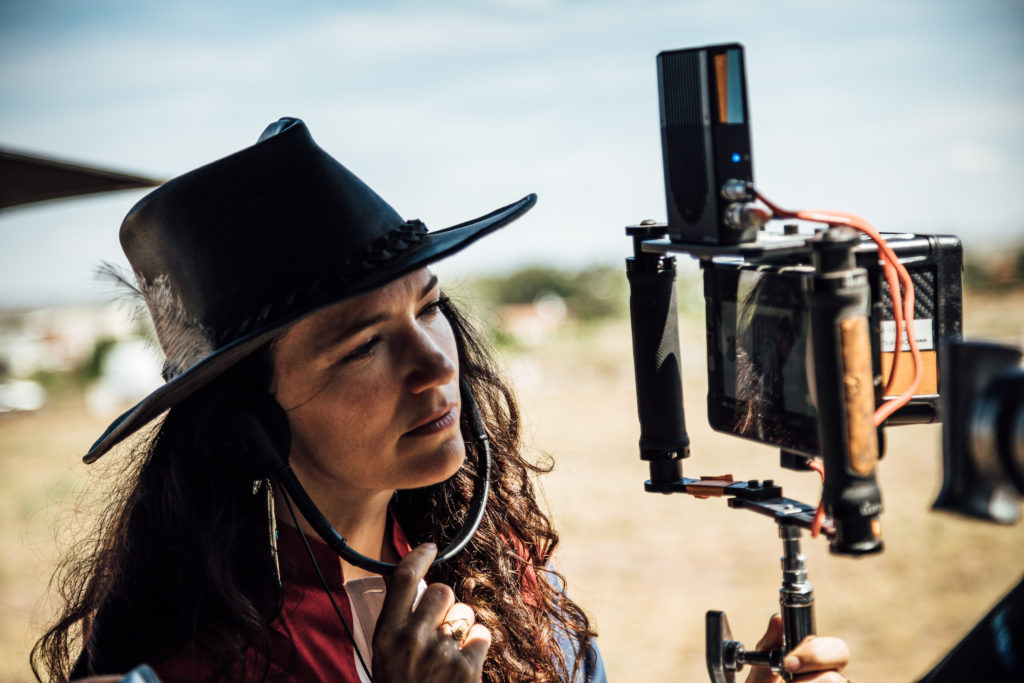
Emmanuel Gomez: I want to stay on the subject of Arthur because you guys put together such a fantastic, broken character. I felt so bad for him throughout a lot of the moments in the film. He’s trying to deal with, like you said, his trauma, and at the same time, we’re not given obviously the details of his illnesses, where you see all these bottles of pills. Can you talk about Arthur and his development and how that translated from a script and then what Aaron did on screen and how that came together for this beautiful character?
April Mullen: Yes, of course. So Tim Doiron, the writer, and my producing partner, we’ve worked together for 20 years now, making features. The backbone of Arthur’s kind of character and truth and the mental health issues that Arthur is going through is something that Tim very personally went through and kind of dealt with huge amounts of paranoia. In terms of conspiracy, government surveillance, who is watching us, and what are they doing with the material they have. All of that anxiety came from a place of truth from the writer.
So him, Aaron and myself, were always kind of going back to Tim for truth, saying like, ‘What does a panic attack feel like when you actually go down that route? What does a person do when they’re trying to leave their apartment and can’t and have so much anxiety about the conspiracies around us and surrounding us that they’re paralyzed by fear, that they can’t get out the door?’

Tim always had these little mantras, like ‘I am powerful, and I am protected’, on his apartment doors when I would go there. We would write, work on whatever film it is over the last 20 years. He kind of is big on that. So any kind of little character traits that Arthur has in the film are from a truthful place from our writer and a few other friends of ours that have kind of gone through mental health issues related to big brother type paranoia and fear.
So Aaron was just also of the world and really believed in the dark web, the black web. What does that mean, conspiracies, and the government’s kind of all around us and controlling us in ways that we’ll never know. We said, ‘If you’re not paranoid, you should be.’ Aaron Eckhart himself is very aware, intelligent, awoken from all of this. He’s on the forefront of all of it. So it wasn’t hard for him to go to that place. It also came from a very strong place of truth for him. So we kind of came up with all of those character traits together and tried to make them really ring true. And it wasn’t hard just because we have such strong experiences within the three of us.
Emmanuel Gomez: How important was it to make sure that you guys showed his (Arthur) support system around him?
April Mullen: When we started writing, Arthur didn’t have anyone he could trust. We did want to have a character like Shelly, Heather Graham, who was sort of his tether to reality. That she saw him through the thick and thin, knew him before the accident and after the accident. Before his illness and during and then kind of after. She is always a support system, and sort of in the film, plays the role of the third perspective, the one that can sort of see the bird’s eye view. Like, Arthur always does this, he’s going to end up hurting himself, hurting someone else. All of those kind of lines of logic come from her. So they’re there for the audience because it’s important to sort of give that perspective outside of Arthur’s kind of inner world, because you’re always with Arthur for so much, and it kind of turns upside down. But the role of Shelly really gives us a bird’s eye view.
Then, Jimmy, his support system is very tiny. He only has two people really. Jimmy, without giving too much away, he’s placed there for a reason because they want to watch Arthur and be close to him and find out what he’s doing. But in his mind at least, Arthur finds friendship and somebody to do his conspiracy podcast with. It gives him motivation and something to live for on a daily basis.
Also, Jimmy is kind of his only outlet to the real world. He doesn’t go out and do anything. Arthur kind of has isolated himself from reality and people and the world. Jimmy is kind of his only outside to a friend and to the world. So whatever Jimmy brings into his world, he believes wholeheartedly. Of course, then when you’re in the fourth act of the film, that starts changing and he starts to question Jimmy’s motivation. But up until that point, Jimmy plays a role of friendship and how to keep an eye on each other, and get through the days, get through the hard days.

Saban Films‘ Wander is currently available in Theaters, On Demand, and Digital.

 FOR FANBOYS, BY FANBOYS
Have you checked out LRM Online’s official podcasts and videos on The Genreverse Podcast Network? Available on YouTube and all your favorite podcast apps, This multimedia empire includes The Daily CoG, Breaking Geek Radio: The Podcast, GeekScholars Movie News, Anime-Versal Review Podcast, and our Star Wars dedicated podcast The Cantina. Check it out by listening on all your favorite podcast apps, or watching on YouTube!
Subscribe on: Apple Podcasts | Spotify | SoundCloud | Stitcher | Google Play
FOR FANBOYS, BY FANBOYS
Have you checked out LRM Online’s official podcasts and videos on The Genreverse Podcast Network? Available on YouTube and all your favorite podcast apps, This multimedia empire includes The Daily CoG, Breaking Geek Radio: The Podcast, GeekScholars Movie News, Anime-Versal Review Podcast, and our Star Wars dedicated podcast The Cantina. Check it out by listening on all your favorite podcast apps, or watching on YouTube!
Subscribe on: Apple Podcasts | Spotify | SoundCloud | Stitcher | Google Play

